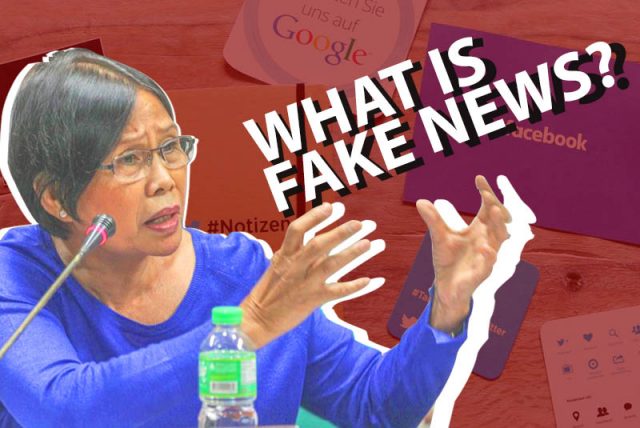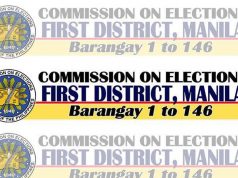Highlights:
- “Fake news” means different things to different parties. It does not necessarily have to be this way.
- VERA Files pins down what “fake news” means for its fact-checking initiative.
- Scholars, meanwhile, have reasonable suggestions.
When Facebook announced that it tapped VERA Files’ to fact check false information being shared on the social network, it was not exactly the best news to Malacañang’s top honchos.
Presidential spokesperson Harry Roque, for one, expressed his reservations about Facebook’s tapping of Vera Files and Rappler as its fact-checking partners. Undersecretary Lorraine Badoy of the Presidential Communications Operations Office, meanwhile, praised Facebook’s initiative but criticized its choice of fact-checkers.
The Palace officials’ remarks did not come as a surprise since the two media organizations have been singled out by administration supporters for their coverage deemed critical of President Rodrigo Duterte.
Responding to criticisms, VERA Files’ order of the day is to pin down a clear definition of “fake news.”
#FACTCHECKPH: We define fake news as falsified information disguised as news spread through one or several platforms, including social media, to deliberately deceive the audience and advance political, ideological, social or economic interest. https://t.co/UnudI6SS0n
— VERA Files (@verafiles) April 19, 2018
Attempts at a definition
The recent release of VERA Files’ definition came after its president, Ellen Tordesillas, was asked on ANC what the media outfit considers as “fake news.”
Explaining that there was no working definition for the project, she said VERA Files’ understanding with Facebook involves identifying “falsehoods” on the platform through a verification process: the cross-referencing of statements with primary sources.
This did not satisfy camps loyal to the president. Critics shifted to attack mode and slammed Tordesillas for her apparent failure to define “fake news.”
“Ang magpa-fact check ng fake news, hirap na hirap i-explain kung ano ang working definition ng fake news,” wrote a Facebook page loyal to President Duterte.
The current discussion on fact-checking and fake news comes in the wake of the allegations flung at PCOO Assistant Secretary Mocha Uson, a popular Facebook blogger and unswerving Duterte supporter.
Facing raps for allegedly spreading “fake news” through the pro-administration blog she maintains in spite of her government post, Uson claimed she was a victim of “fake news” herself.
Last year, she spoke about an anonymous blog post that accused her of receiving a check from defeated vice-presidential candidate Bongbong Marcos and about an ABS-CBN report that named her as a special consultant at the Bureau of Customs prior to her appointment as PCOO assistant secretary.
And herein lies the problem: There’s a tendency to use of the term “fake news” for one’s own benefit.
‘Fake news’ is hard to define, but it is not relative.
Defining fake news has been a challenge even to academics, but instead of giving it a precise definition, scholars use categories and degrees to delimit it.
University of Arizona fellow Mark Verstraete and legal experts Derek Bambauer and Jane Bambauer identified different types of “fake news” as falling into these categories:
- hoaxes
- propaganda
- trolling
- satire
“Rigid distinctions between types of fake news may be unworkable. Many authors produce fake news stories while holding different intentions and motivations simultaneously. This creates definitional grey areas,” the three wrote.
Another group of scholars from Yale University preferred to identify its specific harms:
“The most salient danger associated with ‘fake news’ is the fact that it devalues and delegitimizes voices of expertise, authoritative institutions, and the concept of objective data — all of which undermines society’s ability to engage in rational discourse based upon shared facts.”







